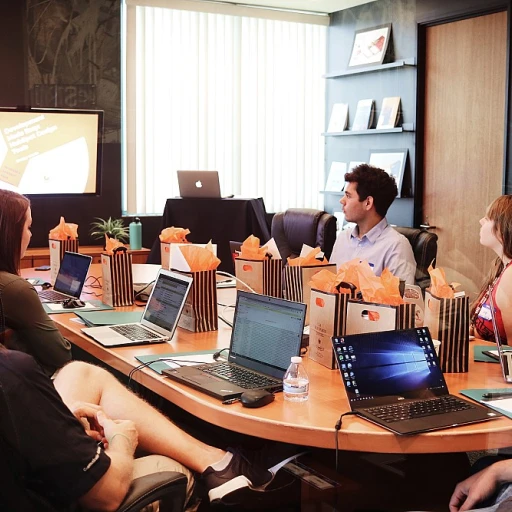Understanding PCM Training
Exploring the Role of PCM in Professional Growth
Professional Crisis Management (PCM) training stands as a vital initiative for individuals looking to enhance their skill sets in today's dynamic environment. PCM is not just another training; it is a comprehensive approach that focuses on improving communication and management skills through a framework called the Process Communication Model (PCM). This model provides an in-depth view into personality types and everyday behavior tools, transforming how communication is approached in a professional setting. One crucial aspect of PCM training is its emphasis on crisis management. Participants will learn how to navigate challenging situations using effective communication strategies tailored to different personality types. The PCM framework's crisis intervention techniques are highly valuable, especially in crisis management scenarios, where understanding a person's personality type can be pivotal. This training is available in various formats, including online classes and day classes, making it accessible to professionals across different sectors. Organizations have witnessed improvements in team effectiveness and individual performance through this training. The process-based training not only equips professionals with a robust communication model but also leads to certifications such as the PCM certification or instructor recertification. These credentials add significant value to a professional's portfolio, demonstrating an advanced understanding of crisis intervention and management systems. Enhancing job performance can be more effective when one understands the importance of communication tailored to personality types. This insight directly reflects in a more proficient handling of professional crises. For more on how this approach can inform your growth, consider exploring enhancing job performance through skill development.The Importance of Upskilling
The Significance of Skill Enhancement
In today's rapidly evolving job market, upskilling has become crucial for maintaining a competitive edge. Employers are on the lookout for individuals who bring not just experience but also diverse and adaptable skill sets. The integration of PCM Training into your professional development plan can act as a catalyst, fostering significant growth in your ability to manage sensitive situations.
As part of this process, it's vital to understand the role of communication in any crisis. Professional crisis management requires more than just technical know-how—it demands a profound understanding of personality types and communication styles. PCM training provides essential insights into these areas, allowing individuals to manage everyday scenarios effectively.
By focusing on key models like the Process Communication Model (PCM), participants will learn how to discern various personality traits and resolve conflicts constructively. Through immersive pcm courses and guided sessions, learners will observe real-world applications like crisis intervention and personality assessments to enhance their management skills.
Day classes provided by certified instructors offer a blend of theoretical and hands-on practice, ensuring that professionals are well-prepared to apply these tools in their day-to-day operations. Online courses and a mix of case studies further bolster this learning, helping individuals adopt a holistic view of crisis management.
Key Benefits of PCM Training
Discovering the Advantages of PCM Training
When it comes to professional growth, Process Communication Model (PCM) training emerges as a critical component for those keen on improving their communication and management prowess. This method focuses on refining everyday behavior tools, enhancing crisis intervention strategies, and bolstering crisis management capabilities. Let’s delve into some key benefits offered by PCM training.
Firstly, PCM-based training significantly enhances communication skills by providing a comprehensive communication model that considers different personality types. Understanding personality dynamics ensures a more tailored approach to interactions, which is crucial in both personal and professional contexts. As you assess diverse personality types, you can better manage teams and streamline communications effectively.
Participants in PCM training will learn to navigate professional crises with greater ease. The crisis management system incorporated within the PCM framework empowers individuals to handle unexpected challenges proactively. This becomes particularly beneficial during high-pressure situations, ensuring that crisis intervention processes are efficient and effective.
Moreover, PCM training offers a structured framework that supports comprehensive management perspective development. It equips professionals with the tools they need to succeed in various crises and achieve instructor recertification, enhancing their career trajectory. The focus on real-world application, through day class and case studies, ensures that what's learned in the classroom translates seamlessly into practical skills.
On the path to long-term career growth, PCM certification serves as a credible endorsement of one’s abilities. Completing the course not only provides you with a wider view of management but also enhances your credibility within your field. The training transforms attendees into more effective communicators and leaders, contributing significantly to their professional journey.
Whether you’re taking an online course or attending in-person day classes, PCM training remains a vital tool in the arsenal of those committed to continuous upskilling. Embrace the PCM approach and step confidently into a future where your communication and management skills know new horizons.
Implementing PCM Training in Your Career
Strategically Integrating PCM Training into Your Professional Life
Incorporating PCM training into your career can be a transformative move, offering numerous advantages as outlined previously. To successfully embed these skills in your professional journey, consider the following strategies:- Diversify Your Learning Modalities: Engaging in both online courses and in-person day classes allows you to experience varied instruction methods that suit distinct personality types and everyday behavior tools. Consider enrolling in PCM classes in vibrant learning hubs like Sunrise, Florida.
- Seek Certified Instructors: Learning from seasoned PCM instructors ensures that you receive quality education that aligns with the current standards of the discipline. Certified teachers bring real-world case studies and crisis management experiences to enrich your learning.
- Integrate PCM into Daily Practices: Implement the process communication model (PCM) in your daily management activities. Applying PCM as a communication model aids in resolving professional crises by understanding diverse personality types and refining crisis intervention skills.
- Focus on Long-Term Goals: Opt for PCM training that includes instructor recertification and continuous learning opportunities. This will prepare you to handle crises effectively while staying updated with future trends in upskilling.
- Team Implementation: Encourage your team to undergo PCM training together. Working as a team promotes a cohesive communication environment and strengthens team-based crisis responses, thereby heightening overall management system efficacy.
Overcoming Challenges in Upskilling
Addressing Hurdles in Skill Development
As you embark on your journey with PCM training, the initial excitement can sometimes be overshadowed by the challenges that surface during the upskilling process. Recognizing these obstacles and preparing to tackle them is essential for a successful learning experience.
One of the primary hurdles in upskilling is managing time effectively. The course day is demanding, balancing work commitments and training can be a struggle, especially during intense day classes. This is where a well-structured crisis management approach comes into play. By planning and organizing your day-to-day activities efficiently, you can integrate PCM training seamlessly into your professional routine.
Another potential challenge is adapting to diverse personality types within the training environment. PCM training relies heavily on understanding various personality types and adjusting your communication strategy accordingly. Engaging with case studies and simulations can significantly enhance your ability to navigate these differences.
Online learning platforms offer flexibility but require discipline. The temptation to multi-task during an online course can be enticing; however, focusing entirely on training sessions ensures you absorb the communication model and management systems taught by expert instructors. Committing to learning every day with a dedicated mindset helps reinforce new skills effectively.
Achieving a certification is not merely about attending classes; it involves internalizing the knowledge and applying it in real-world scenarios. Professional crisis management expertise is attained through patience, practice, and persistence. Engaging actively in the process communication model, and seeking feedback regularly from your instructor can guide you toward mastering this complex system.
Finally, the path of skill enhancement is not a solo journey. Engage with your peers, form study groups, and participate in team activities whenever possible. Sharing insights and experiences fosters a richer learning environment and aids in overcoming the personal challenges one might face.












